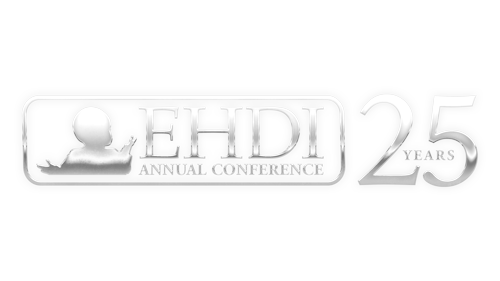2026 Early Hearing Detection & Intervention Conference
March 15-17, 2026 • Jacksonville, FL
3/14/2022 | 10:05 AM - 10:30 AM | Improving Systems of Care for Children with Hearing Loss, Autism and Other Developmental Disabilities | Room 12
Improving Systems of Care for Children with Hearing Loss, Autism and Other Developmental Disabilities
The prevalence of co-occurring diagnoses of hearing loss (HL) and Autism Spectrum Disorder (ASD) and or developmental disability (DD) is increasing (Nelson & Bruce, 2019; Szymanski et al, 2012). As professionals who support children with hearing loss and their families, it is important to understand the specific needs for healthcare services. This knowledge aids in providing effective, culturally competent, family-centered services and supports and improve systems of care for children with HL and with or at risk for ASD/DD.
The National Survey of Children’s Health (NSCH) provides national and state-level representative prevalence estimates for a variety of child health indicators (NSCH, 2020). In a recent analysis of the NSCH for the combined years of 2016-2019, the authors compared data of children with HL only, ASD only and HL + ASD/DD. The data revealed that 35.6% of children with HL had ASD/DD and 7.2% of children with ASD/DD had HL. In addition, the findings suggested that children with HL + ASD/DD have greater unmet healthcare needs than children with HL or ASD alone. Families of children with HL + ASD/DD were more likely to report not receiving needed health care in the last year (18.6%) compared to those without ASD/DD (7%) and children with ASD/DD alone (5.6%) (p =.03).
The Georgia LEND Pediatric Audiology Program conducted a mixed methods study to evaluate the barriers to accessing care for children and families. Families of children with HL + ASD/DD (N= 20) were recruited to complete a survey related to the reasons for unmet healthcare needs in the NSCH. This presentation will review the data collected and discuss ways in which systems of care can be more responsive to the needs of children with HL + ASD/DD and their families.
- Review national prevalence data on health indicators for children with hearing loss and other disabilities.
- Identify specific barriers to care for families of children with hearing loss and other disabilities.
- Discuss strategies to improve systems of care to address the specific needs of children with hearing loss and other disabilities and their families.
Presentation:
3353554_15079KristinaOrmond.pdf
Handouts:
Handout is not Available
Transcripts:
CART transcripts are NOT YET available, but will be posted shortly after the conference
Presenters/Authors
Akilah Heggs
(Primary Presenter,Co-Author), Georgia State University, aheggs@hrsa.gov;
I am a certified clinical audiologist with 20 years of experience in pediatric audiology and have served as the state coordinator for the Georgia Early Hearing Detection and Intervention (EHDI) Program. For the past 7 years, I have been the audiology discipline faculty for Georgia State University’s HRSA-funded Leadership Education in Neurodevelopmental Disabilities program and the instructor for the Systems of Care course. Through my doctoral degree in Public Health, I have training in health promotion with a particular emphasis on maternal and child health, specifically related to children with special healthcare needs. I have a strong interest in capacity building within public health for maternal and child health programs, particularly addressing issues related to access and equity of health services for children with disabilities.
ASHA DISCLOSURE:
Financial -
Nonfinancial -
AAA DISCLOSURE:
Financial -
Nonfinancial -
Kristina Ormond
(Co-Author), Georgia State University, kormond1@student.gsu.edu;
Kristine Ormond is a licensed audiologist with eight years of experiences working with the pediatric population. She is currently pursuing her master's degree in public health at Georgia State University to work broadly with reducing disparities in care for individuals with disabilities.
ASHA DISCLOSURE:
Financial -
Nonfinancial -
AAA DISCLOSURE:
Financial -
Nonfinancial -
